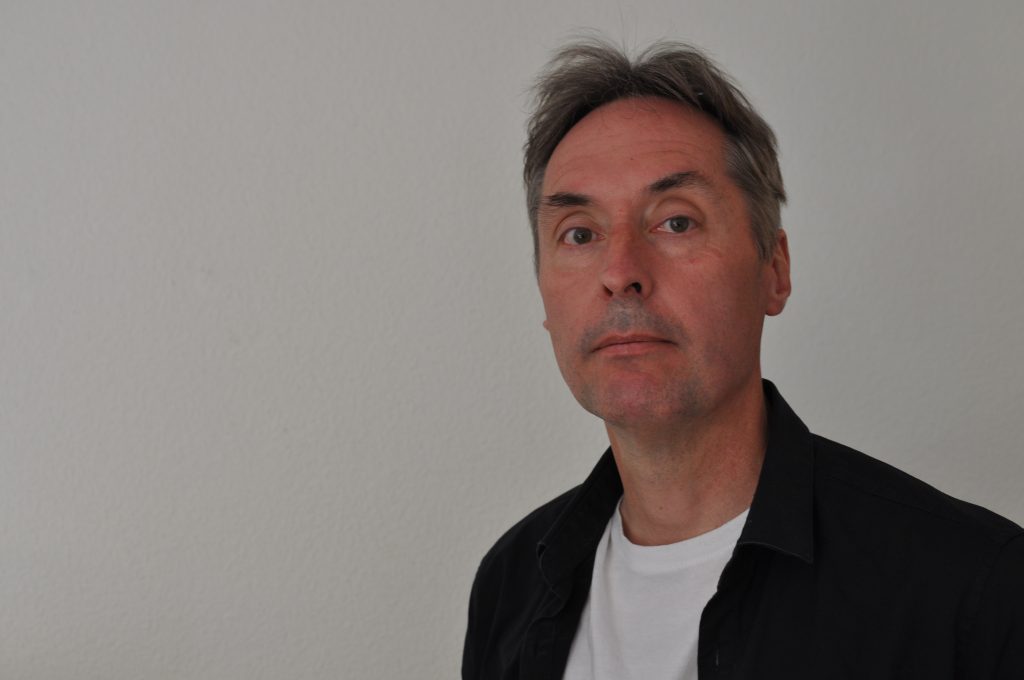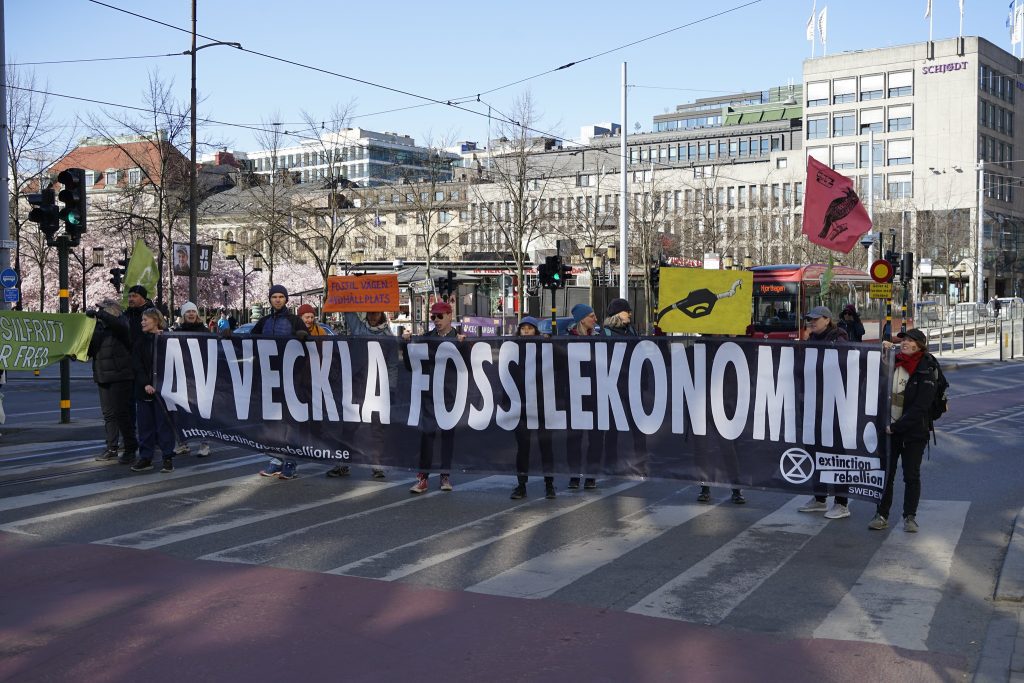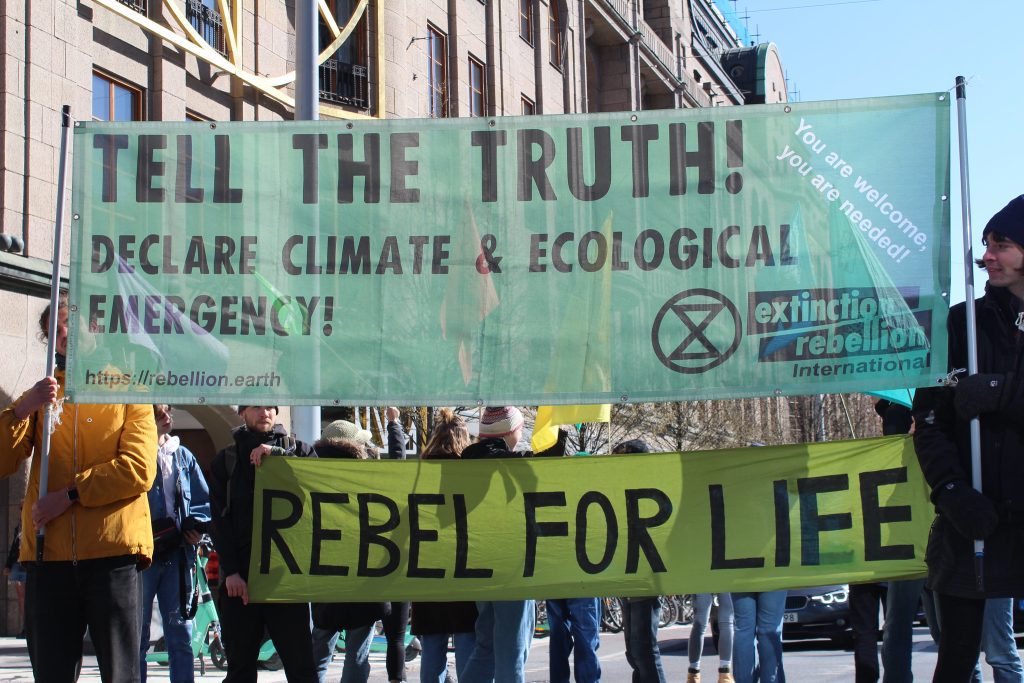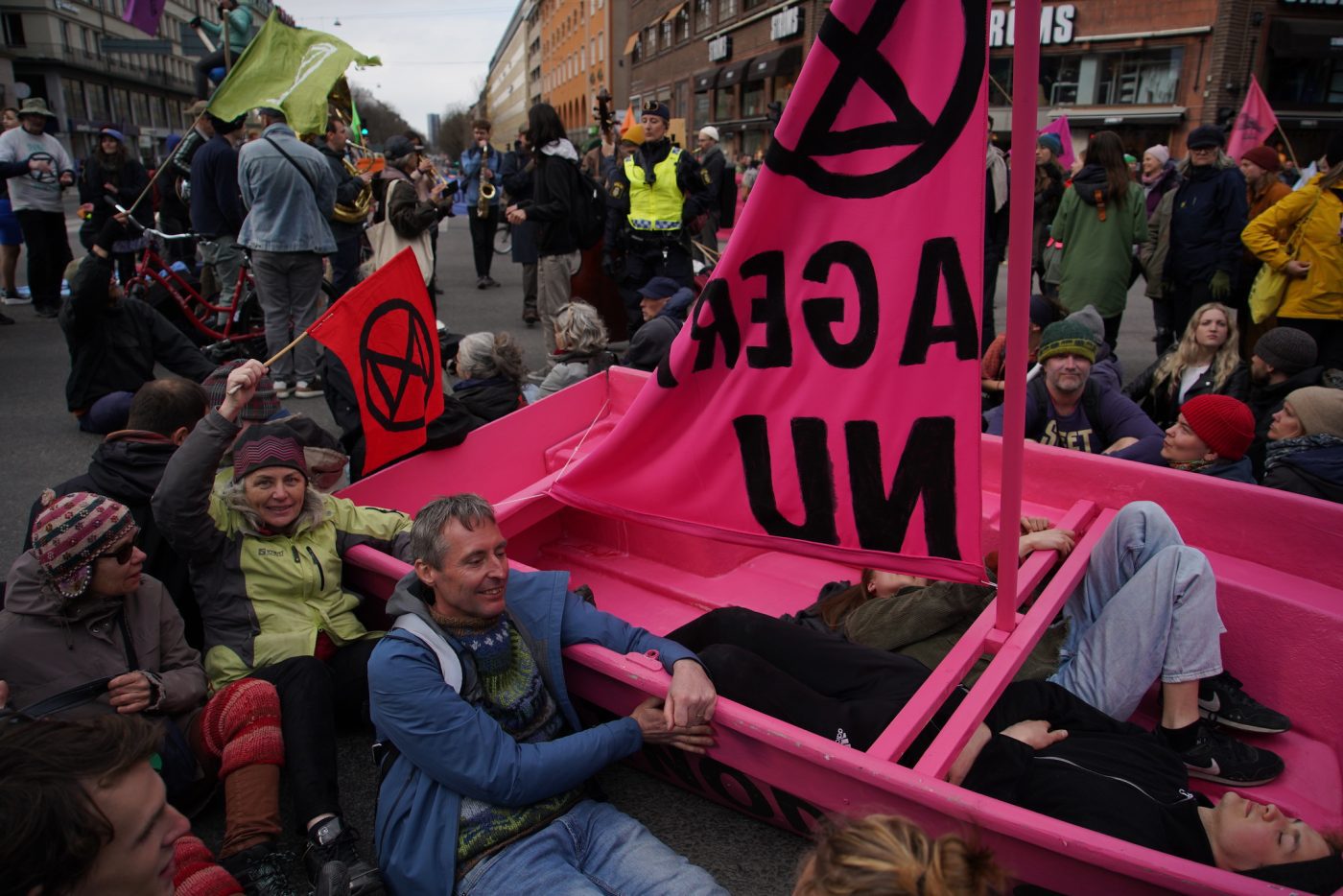This is an extended version of an interview for a piece that will be published in the November 2023 issue of The Perspective magazine.
The oceans are boiling. Relentless droughts, biblical floods and raging wildfires are ever more frequent displays of weather and climate extremes kindled by the climate crisis. Storm surges and accelerated coastal erosion tear apart paths, roads and beaches I grew up with. Devastating effects are felt across the globe. And yet our politicians do less than nothing. Despite decades of international efforts to establish effective global climate governance, we continue to race down the “highway to climate hell with our foot still on the accelerator”.
Climate activists around the world are targets of vitriol and violence. They are discredited, threatened, criminalised, and even murdered, with Colombia, Brazil and Mexico among the deadliest countries. In Europe, mass arrests and harsher sentences are being used to intimidate and punish people trying to raise the alarm about impending climate catastrophe. To learn more about this, I interviewed Swedish climate activist, Pontus Bergendahl.
Disclaimer: Any opinions expressed in this interview belong solely to the interviewee and do not represent the views and opinions of the author, the editorial staff of The Perspective, or UPF Lund.


Five years ago, you abandoned a comfortable life to pursue climate activism full-time. You’ve stopped traffic and aeroplanes; blockaded oil terminals and refineries; occupied offices and glued yourself to a whole host of surfaces. You were the first climate activist to serve a prison sentence in Sweden. How did you get here?
I’m still very surprised that I’m so radical. I’ve never been a person that stands out. The only answer I have is that it is the only rational way to handle the climate crisis. I feel that I have to do it.
Could you explain why you were most recently in court?
In April 2022, Extinction Rebellion blocked two of the main roads in central Stockholm. It was peaceful, as it always is. The police carried us away but we didn’t get arrested. In court, I was charged with ‘sabotage’ and ‘disobeying police order’. That was a big surprise. Another disturbing thing was that the prosecutor suggested a two-and-a-half-month prison sentence.
What is it like to be in a protest like that?
The atmosphere is friendly and open. You don’t need to shout when doing a blockade because you have said what you want with your body. You get a certain calmness.
I think for all of us, there is a deep sorrow. It’s not conscious all the time but now and then it just comes up. You feel the horror that we’re facing and the sadness of all we are losing.
How does it feel to be taken to court for climate activism?
It’s very sad. I always trusted Swedish society. I was proud of paying taxes and contributing. Now I feel outside of society because I think that the social contract is broken. The system is everywhere, and whatever you do, it works against you, all the time. If we do something like blocking a street, the whole machinery—newspapers, politics, police—works towards business as usual.
What goes through your head when you’re sitting in a courtroom?
It gets very emotional because you have to talk about the climate emergency and its effects. I think for all of us, there is a deep sorrow. It’s not conscious all the time but now and then it just comes up. You feel the horror that we’re facing and the sadness of all we are losing.
The court wants court cases to be a certain way. They want it to be about where I was standing, and how much traffic was stopped. They want to be clinical. I want to talk emotionally about the climate crisis. That is a struggle between me and the court.


In five years of participating in climate actions, what have been some of your favourites?
I love doing actions that really change things. We went out to the peat mines this summer with shovels and just plugged the ditches. When you go out to a peat mine you see kilometre after kilometre of sterile peat, and a lot of ditches because they have to drain it. Going with a shovel and plugging the ditches is extremely satisfying.
I’ve been to Sápmi in Northern Sweden where the Sámi people live. We blocked the machine that cuts down trees. That was the same feeling. I’m calm during those types of actions. The most stressful and scary actions are highway actions because it’s life-threatening to be out on a highway, and you get so much hatred.
What would you say to people who don’t approve of these tactics: direct action, blocking roads, glueing yourself to things?
You should make a distinction between what people think about our goals and what they think of our methods. That’s what Martin Luther King Jr. wrote from the Birmingham jail. We don’t care if people like us as long as we can create public opinion about climate change and what we should do about it. You also need to put things into perspective. If you’re mad about people stopping cars while the whole world is ending then we’re not on the same page.
The UN states that prison is never appropriate for peaceful civil disobedience—it’s significant that Sweden goes against that.
You, your wife, and your daughters have been arrested and tried in court for climate activism several times. How has this shaped your opinion of the legal system?
When one of my daughters got her first sentence, the court wrote that it’s up to the government to handle the climate crisis. Whatever risks the government accepts, you are forced to accept. When they say that to a young person, it makes me extremely mad. I don’t trust the system anymore. Like Greta Thunberg said, we don’t have the political system or the legal system to handle the climate crisis—so we need to fight them both.
In Sweden, climate activists are receiving harsher sentences. Road blockades are now often classified as ‘sabotage’, a much more serious crime than the previously common ‘disobeying police order’. How have you experienced these changes?
The repression has definitely increased. When we started, we didn’t even get fined for roadblocks. Then we got fined and jailed. Now they charge us with sabotage, which is basically a prison sentence. I have mixed feelings about it. It’s tougher to get people to join our actions. On the other hand, I see the repression as a sign that we are affecting society.
The most irritating thing in my years as an activist is that almost none of the politicians talk to us. They just increase the repression. Sweden has received international criticism for the sabotage convictions. The UN states that prison is never appropriate for peaceful civil disobedience—it’s significant that Sweden goes against that.


What would you say to people who think of Sweden as a shining example of dealing with climate change?
It’s absolutely not true. The government wants to paint this picture of Sweden. The Swedish people think that we are the best in the world when it comes to climate change. But all countries have their own story. Norway has the highest proportion of electric cars in the world. It is also one of the biggest oil producers in the world. They say that they have the ‘greenest’ oil in the world, which is ridiculous. Australia claims to have the ‘greenest’ coal in the world.
I think hope is overestimated. You don’t need hope to act.
Thinking about the climate crisis often leaves me paralysed by fear and hopelessness. What would you say to people struggling with climate anxiety?
I don’t think you should push away climate anxiety. I think it is a natural way to feel and you can try to embrace it. But if it becomes too much, you should seek professional support.
I remember one action where the Extinction Rebellion youth were sitting outside the offices of the Swedish Social Democratic Party. For a whole week, they sat outside. No politician spoke to them. On the last day, an employee came out and told them they should read more ‘happy news’. That makes me so mad. It was so patronising. The system and the politics are very patronising, dismissing the worry people feel about the climate crisis.
How hopeful are you about the future?
I think hope is overestimated. You don’t need hope to act. If you look at resistance movements throughout history, it’s not hope that motivates people to go out on the street and take big personal risks. It’s about justice and doing the right thing. Studies have shown that people taking down dictatorships don’t believe beforehand that they can win. They are surprised when a dictator falls. It’s not fair that we have a government that kills us. That is much more motivating than hoping for a better future.
Looking at the figures and graphs, I can’t see how we can avoid a disaster. There will likely be several tipping points [ed. critical and irreversible climate thresholds] that we will trigger. But I don’t think about it too much because it doesn’t matter.
When I started as a climate activist, my goal was to save the world. That is too big of a task to have. I became burned out. When I was in prison, it felt like a retreat. My mindset changed. I want to be a person who stands up for good values. It doesn’t matter if I win or not. My wife said early in our climate activism: “I don’t want to go down without a fight”. That is in my head all the time. That is enough to motivate me to continue.
By Ffion McEvoy
November 7, 2023








